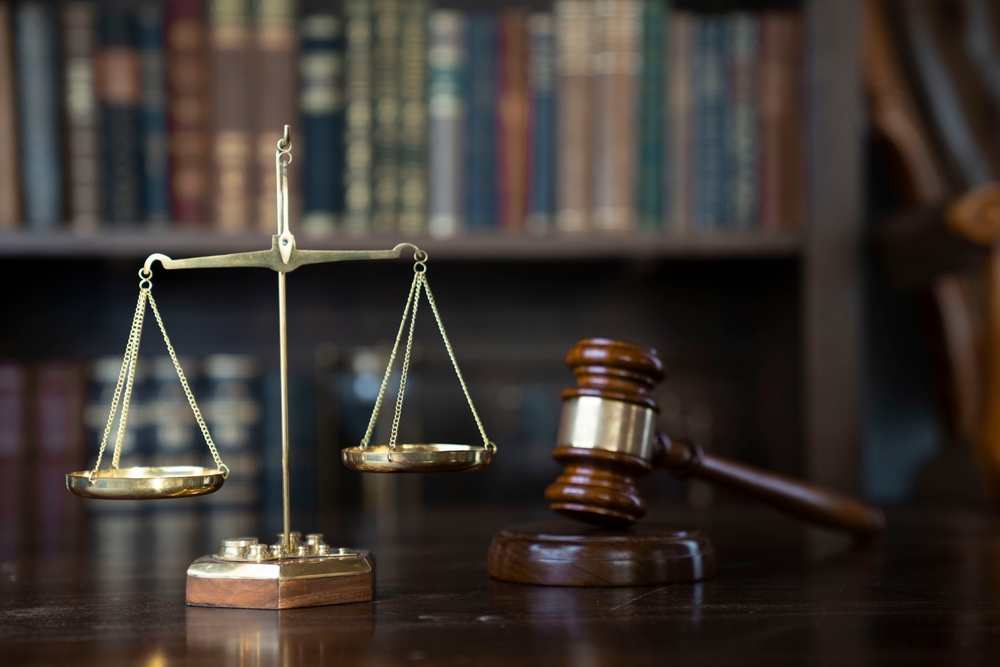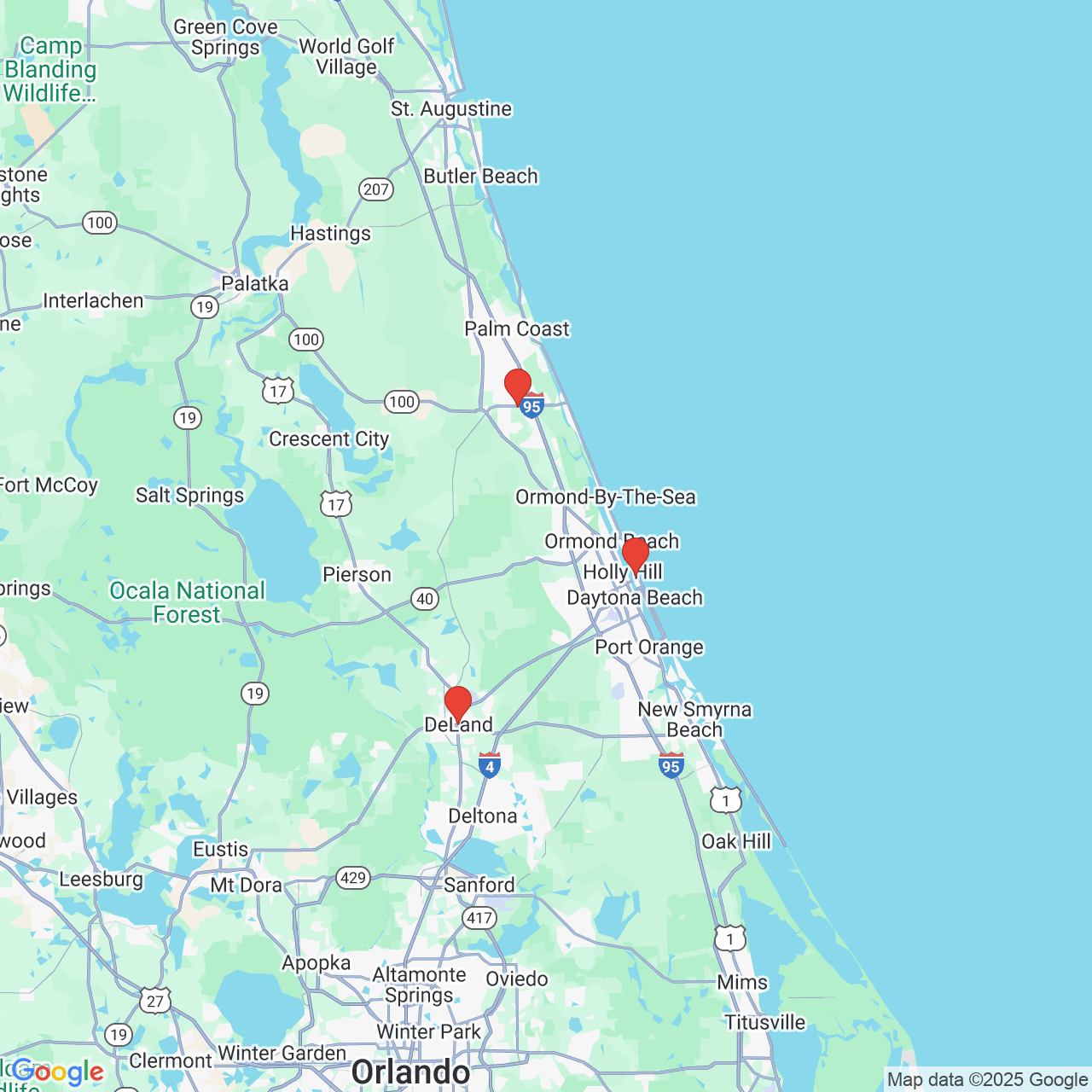Florida Tort Reform HB 837: Key Changes for Personal Injury Lawsuits

There have been changes to tort law in the last few months due to Florida House Bill 837. You may not have followed news about this tort reform bill in the spring and summer, but it can have a major effect on you if you need to file a car accident lawsuit or other kind of personal injury claim.
Our legal teams in Daytona Beach and Palm Coast, FL, would like to provide a straightforward explanation about HB 837 and how it will affect plaintiffs in personal injury lawsuits.
What Is Florida House Bill 837: Tort Reform Laws
Signed into law on March 24, 2023, HB 837 was intended to help decrease frivolous lawsuits in the state of Florida. These reforms to the state's tort system can affect plaintiffs pursuing litigation in many ways.
Key Takeaways for HB 837
Here are three key changes to Florida law in 2023 that will affect cases moving forward.
-
The statute of limitations for personal injury claims has changed from four years to two years
-
You cannot recover any damages in a personal injury case if you were more than 50% at fault
-
New standards have been implemented to calculate past and future medical expenses related to personal injury and wrongful death claims
We'll elaborate on each point below, but the nature of these changes hammer home the importance of working with skilled attorneys who understand Florida tort law.
Our Attorneys Can Help Keep Your Case on Track
Chanfrau & Chanfrau has served Florida for decades at our Daytona Beach law office and Palm Coast law office.
Whatever your accident case involves, you can count on our law firm to keep it moving forward while providing you with all the information you need every step of the way.

Changes to Statute of Limitations
Prior to HB 837, the statute of limitations for personal injury claims in Florida was four years from the date of an accident.
Now that HB 837 is in effect, you have a two-year time limit to file a personal injury, medical malpractice, or wrongful death case.
How the Shorter Statute of Limitations Could Affect Your Case
Say that you were in a serious accident with a large truck a few years ago. Even though it is ideal to file a legal claim as soon as possible, it may have taken time to file an injury claim for a variety of reasons.
With the new law in effect, you would have to file that truck accident lawsuit within two years of the crash. Once that two-year time period has elapsed, you can no longer file an accident claim.
There is now less reason to hesitate about filing an injury lawsuit given this shorter deadline.
Changes to Comparative Negligence
Before HB 837, Florida personal injury law operated on a concept known as pure comparative negligence. This meant that no matter how much you were at-fault in an accident, you could still recover damages. For instance, if you were 75% at-fault in a crash, you could still recover up to 25% in of total damages in court.
After HB 837, Florida personal injury law now operates on a principle of modified comparative negligence. That means you can only collect damages if you were less than 51% responsible for the accident.
How Modified Comparative Negligence Could Affect Your Case
Let's say that you were riding a motorcycle and got hit by a car in an intersection, resulting in severe injuries. In this hypothetical collision, you were driving above the speed limit and you ignored a stop sign. The driver of the car disregarded the stop sign as well, but slowed down and rolled through rather than coming to a complete stop.
A jury may find that while there is fault with both parties, the person on the motorcycle was more liable for the crash than the driver of the car. Regardless of the the injuries sustained, the motorcyclist could not recover any legal damages because they were more than 50% at fault.
A lawyer can help you get a realistic assessment of your accident claim, including how liable you are for an accident and how that will affect the value of your case.

Changes to Calculation of Medical Damages
With the passing of HB 837, there are major changes to how past medical bills and future medical expenses can be introduced as evidence.
These changes to tort law can be complicated, but the National Law Review provided an excellent breakdown of what HB 837 means for medical calculations. In summary:
- For past medical bills and expenses, the amount actually paid for medical services can only be presented as evidence, not the initial billed amount for medical services.
- For future medical bills and expenses, only the amount satisfied by health care coverage and the plaintiff's out-of-pocket expenses is admissible as evidence during trial. The numbers vary if coverage is provided by Medicare or Medicaid.
In addition, medical damages compensation is limited to services paid for and any reasonable and necessary future medical needs. These amounts cannot be inflated.
Understanding the Value of Your Claim
The actual cost of medical treatment and issues of shared liability can eat into the damages you're seeking. That's why it's crucial to work with a qualified Florida personal injury lawyer from the beginning.
The team at Chanfrau & Chanfrau can help you understand how much your case is worth and be a strong advocate throughout the legal process. Whether negotiating a fair settlement with an insurance company or taking an at-fault party all the way to court, you can count on our team to stand with you.

Why You Should Hire the Lawyers of Chanfrau & Chanfrau
Floridians have turned to Chanfrau & Chanfrau for their legal needs for years, and with good reason.
Free Consultations
You don't need to pay anything to speak with a qualified Florida personal injury lawyer. Chanfrau & Chanfrau offers complimentary case reviews.
There's no obligation and no pressure involved. Just tell us what happened and we can tell you if you have a case worth pursuing.
Contingency Fee Representation
Are you worried about the cost of hiring a personal injury lawyer? At Chanfrau & Chanfrau, you won't have to pay a retainer for our legal services, nor will you be charged for any legal fees upfront.
You do not have to pay our law firm anything unless and until we can successfully settle your case or win damages in court.
You owe us nothing if we can't win for you.

A Long History of Legal Excellence
The Chanfrau family has a long history in Florida and Volusia County law. My great-grandmother was Florida's first female court reporter and my grandfather was appointed by the Governor to proceed her in the same position.
My father began practicing defense law in 1973, and opened a law firm to represent the rights of plaintiffs in 1976.
Unique Perspectives on Personal Injury Law
In addition to a long history of fighting for accident victims and their families, we bring unique knowledge given our respective legal careers.
Like my father, my sister Kelly began her career as a defense attorney, which helps her understand cases from the other side. I started my career in the State Attorney's Office, which gives me a unique perspective on legal procedure.
Need to Speak With a Lawyer?
Discuss Your Case With Our Attorneys
If you have been injured in an accident and need legal advice about what to do next, contact Chanfrau & Chanfrau today. Our legal team is ready to help you.

About William Chanfrau, Jr.
William M. Chanfrau, Jr. began his legal career in 1997 working for the State Attorney's office. He joined his father's practice in 2001 and became a managing partner at the firm in 2007. Mr. Chanfrau is a member of the Florida Bar, the Southern Trial Lawyers Association, the Volusia Civil Trial Lawyers Association, and other legal organizations.
Read Mr. Chanfrau's Full Bio | All Posts by Mr. Chanfrau



